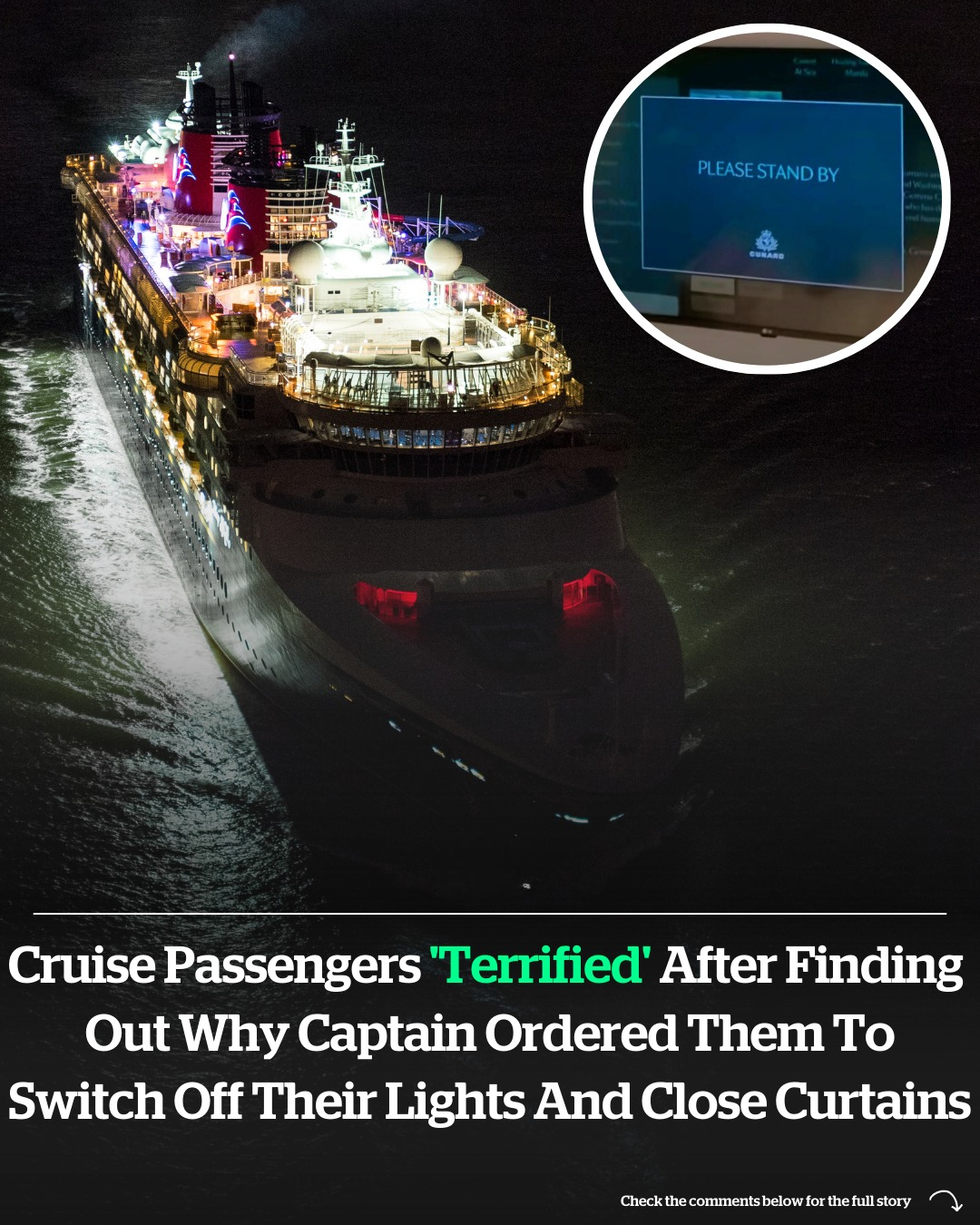Passengers aboard Cunard’s Queen Anne cruise ship recently experienced a chilling reminder that the dangers of piracy still exist in certain parts of the world, and the moment quickly went viral after a traveler captured it on TikTok. The ship, which was in the middle of a 111-night journey between Darwin, Australia, and Manila, Philippines, suddenly shifted from a carefree vacation vibe to an atmosphere of tension when the captain made a startling announcement over the loudspeaker.

As the ship entered the Sulu-Celebes Sea, a region long known for piracy threats, the captain explained that the vessel would be operating under heightened security precautions. He instructed passengers to turn off all unnecessary stateroom lights, close their curtains, and refrain from leaving them open at night. The promenade deck was ordered closed after dark, and deck lights were adjusted to reduce visibility to potential threats at sea. In addition, the captain outlined emergency procedures in the unlikely event of a piracy-related incident, emphasizing that the safety of passengers and crew was the ship’s top priority.
He attempted to reassure guests by stressing that incidents involving large luxury liners like the Queen Anne were extremely rare, adding that extensive measures had been put in place to prevent any danger. Still, for many on board, the announcement felt like something out of a thriller novel rather than a real cruise experience. The eerie moment, captured by passenger and TikTok user @lillydapink, racked up over 8.9 million views, with viewers expressing shock that piracy precautions are still a reality today. “Idk why but every time I hear about real-life pirates I’m always shocked/amazed that they really exist,” one commenter wrote, while another joked, “I’d lock myself in my room and order room service.”
A third, claiming to be a former cruise ship worker, reassured viewers that precautions like this are not unusual in certain parts of the world, recalling that some ships even hired armed security teams when passing near Somalia. Additional videos posted by the TikToker showed the measures in action, including darkened staterooms with curtains drawn tightly shut and security personnel actively patrolling the vessel. “So all the blinds were shut, and the lights were down to the minimum last night.
The security did an amazing job keeping watch over the ship last night. Well done guys,” the user captioned one clip, praising the crew for their professionalism. While terrifying for some passengers, maritime experts noted that such measures are not unheard of. Pirates generally target oil tankers, fishing vessels, or cargo ships rather than luxury cruise liners, but companies do not take risks when traveling through high-risk zones.
Cunard later clarified to Business Insider that there had been no direct threat to the Queen Anne or its guests, but that the captain’s announcement was part of “standard maritime procedures” when sailing through certain regions.
The company stressed that onboard experiences were not disrupted, but admitted that precautionary measures were necessary given the area’s reputation. Historically, the waters between Indonesia, Malaysia, and the Philippines have seen piracy and even kidnapping-for-ransom operations, with the Abu Sayyaf Group—an extremist militant and pirate organization—responsible for many of the region’s most notorious cases. Between late 2016 and mid-2022, shipping advisories even recommended avoiding the area due to heightened abduction risks. However, as of January 2025, the official threat level for the region was downgraded to “low” because there had been no recorded abductions since January 2020.
Still, the downgrade did little to calm nerves for some passengers who had never considered piracy a modern-day threat. For them, the captain’s words turned a luxury vacation into an unsettling reminder of the unpredictability of global travel. The Queen Anne itself is an impressive vessel, stretching 1,058 feet long and carrying nearly 3,000 guests along with 1,225 crew members. The massive ship embarked on its grand voyage on January 7 from Hamburg, Germany, making stops across the globe, including England, New York, Hawaii, Mexico, New Zealand, Australia, China, and beyond. Its return journey also included ports in Vietnam, South Africa, Singapore, and Malaysia before eventually returning to Hamburg on April 29.
For many, the ship’s globe-spanning itinerary was a dream vacation, but the brush with piracy precautions served as a sobering reality check. While most travelers expect occasional storms or medical emergencies at sea, few anticipate being told to shut their curtains and darken their rooms to avoid attracting the attention of pirates. Still, the incident demonstrated the importance of vigilance and preparedness in maritime travel. The viral videos sparked global fascination, with many commenters stunned that piracy remains a factor in modern seafaring.
Others applauded the captain and crew for their professionalism, noting that their ability to keep nearly 3,000 passengers calm under such tense circumstances was an achievement in itself. Ultimately, while no direct danger materialized, the incident aboard the Queen Anne served as a rare reminder that even in 2025, some regions of the world still harbor risks that feel like relics from centuries past. For the passengers, it was an experience they won’t soon forget, and for the millions who watched online, it was proof that the age of pirates is not entirely over.





